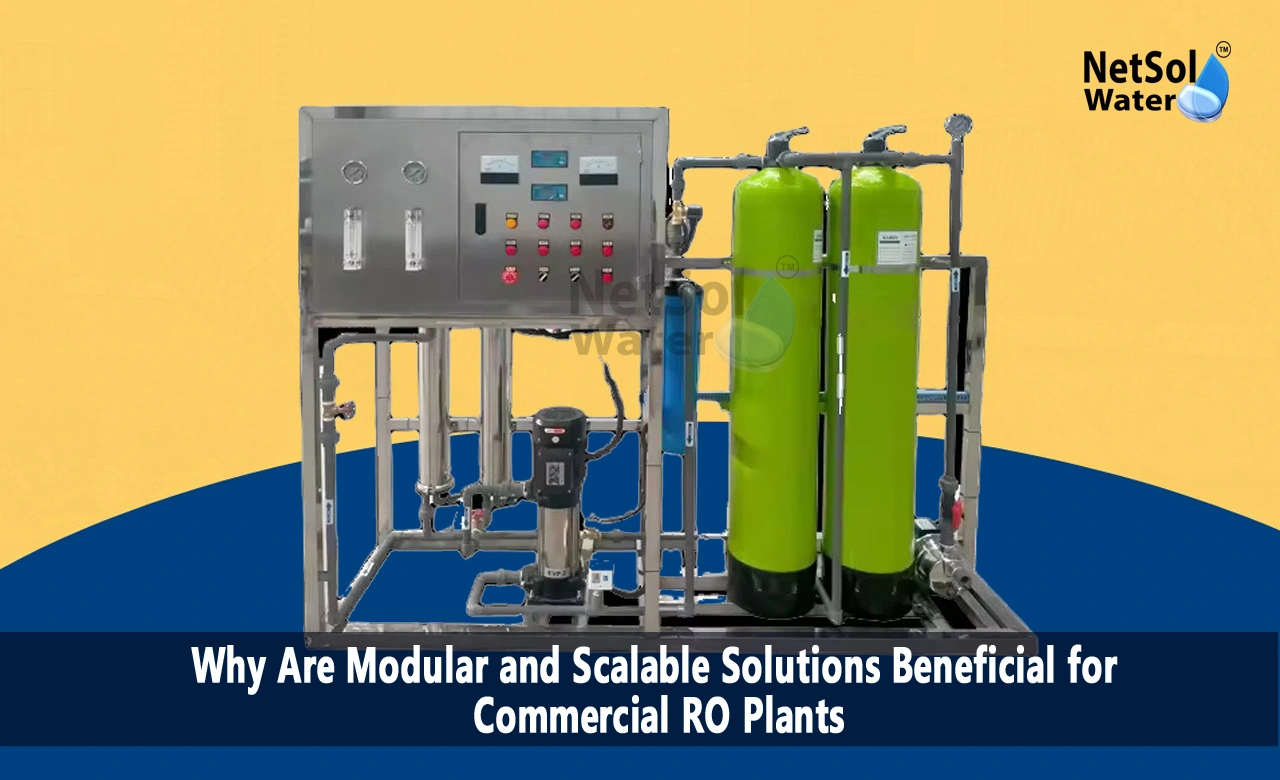Why Are Modular and Scalable Solutions Beneficial for RO Plants?
In today's fast-changing world, businesses need to adjust to keep up with the changing needs and market conditions to stay competitive. This is particularly important for commercial reverse osmosis (RO) plants, which are important for providing clean water for different industries. Regular RO plants usually have a set design and size, making it hard to handle changes in water needs or new technologies. That's where modular and scalable solutions come in. They offer many benefits that can help commercial RO plants do well in a constantly changing business world.
Understanding Modular and Scalable Solutions
Modular solutions involve breaking down complex systems into smaller, manageable units or modules. Similarly, scalability refers to the ability of a system to adapt and expand in response to changing demands or requirements. In the context of RO plants, modular and scalable solutions entail designing systems that can be easily expanded or modified without significant disruptions to operations.
Modular and Scalable Solutions Beneficial for Commercial RO Plants
Flexibility to Meet Changing Demands
One of the primary benefits of modular and scalable RO plants is their ability to adjust to changing water demands. Industries such as manufacturing, food and beverage, and pharmaceuticals often experience fluctuations in production levels, leading to varying water requirements. With a modular design, commercial RO plants can easily add or remove individual units, known as modules, to increase or decrease their overall capacity. This flexibility allows plant operators to optimize their water treatment systems based on real-time needs, ensuring efficient resource utilization and minimizing waste.
Furthermore, modular solutions enable commercial RO plants to accommodate future growth or expansion plans without the need for complete overhauls or replacements. As businesses expand their operations or enter new markets, the water treatment system can be scaled up gradually by adding additional modules. This approach not only reduces the upfront capital investment but also minimizes downtime and disruptions to existing operations.
Efficient Use of Resources
Modular and scalable RO plants contribute to the efficient use of resources, both in terms of water and energy consumption. Traditional fixed-capacity systems often operate at suboptimal levels when water demands fluctuate, leading to inefficient resource utilization. In contrast, modular solutions allow plant operators to match the system's capacity to the actual water requirements, ensuring optimal performance and minimizing waste.
Additionally, modular RO plants can incorporate advanced technologies and energy-efficient components more easily. As new and more efficient modules become available, they can be integrated into the existing system, gradually upgrading the plant's overall efficiency without the need for complete replacements. This approach not only reduces energy costs but also contributes to a lower carbon footprint, aligning with sustainable business practices.
Simplified Maintenance and Upgrades
Another significant advantage of modular and scalable RO plants is the simplification of maintenance and upgrades. In traditional fixed systems, maintenance or repairs often require shutting down the entire plant, resulting in costly downtime and production disruptions. With modular solutions, individual modules can be isolated and serviced without affecting the overall operation of the plant. This feature minimizes disruptions and allows for more efficient maintenance scheduling, reducing the overall operational costs.
Moreover, modular designs facilitate easier upgrades and technology integration. As new and improved RO membrane technologies or advanced monitoring systems become available, commercial RO plants can gradually upgrade their systems by replacing or adding new modules without the need for a complete overhaul. This approach extends the lifespan of the plant and ensures that it remains up-to-date with the latest advancements in water treatment technology.
Cost-Effective and Sustainable Solutions
Modular and scalable RO plants offer cost-effective solutions for businesses, both in terms of initial investment and ongoing operational expenses. By allowing for gradual capacity expansion, modular systems reduce the upfront capital requirements compared to traditional fixed-capacity plants. This feature is particularly beneficial for businesses with limited financial resources or those operating in uncertain market conditions, as it enables them to invest in water treatment solutions that align with their current needs and budget constraints.
Furthermore, the efficient use of resources and the ability to incorporate energy-efficient technologies contribute to significant cost savings over the plant's lifetime. Reduced energy consumption translates into lower operational costs, while minimizing water waste and maximizing resource utilization further enhances the overall cost-effectiveness of the solution.
From a sustainability perspective, modular and scalable RO plants align with the principles of circular economy and environmental responsibility. The efficient use of resources, reduced energy consumption, and minimized waste generation contribute to a lower environmental impact. Additionally, the ability to upgrade and integrate new technologies ensures that commercial RO plants can stay ahead of evolving environmental regulations and sustainability standards.
Conclusion
In the rapidly changing world, modular and scalable solutions are a big plus for commercial reverse osmosis plants. They offer lots of benefits like adapting to changing water needs, using resources efficiently, making maintenance easier, and being cost-effective and eco-friendly. These systems help businesses keep up with the market and stay competitive.
With the modular approach, RO plants can adjust their water treatment setups as needed, cutting waste and improving efficiency. They can also grow gradually or add new tech, keeping up with the latest in water treatment.
Using resources wisely and using energy-efficient parts saves money and is better for the environment, fitting with eco-friendly business practices.
As businesses face constant changes, modular and scalable RO plants are a flexible choice that can grow with them. By embracing these new methods, RO plants can set themselves up for long-term success, tackling today's water treatment needs while getting ready for what's ahead.
Do you need an advice or assistance on selecting the best water and waste water treatment unit? We have solutions for all your problems!
Let us now your problem, our experts will make sure that it goes away.
For an assistance or related query, Call on +91-965-060-8473 Or write us at enquiry@netsolwater.com



